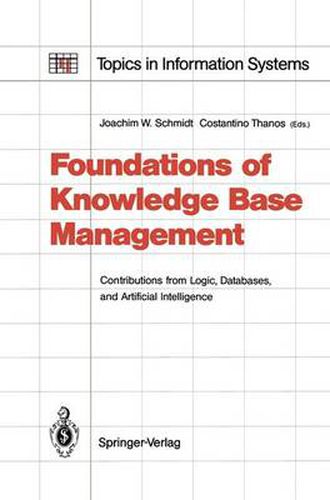Readings Newsletter
Become a Readings Member to make your shopping experience even easier.
Sign in or sign up for free!
You’re not far away from qualifying for FREE standard shipping within Australia
You’ve qualified for FREE standard shipping within Australia
The cart is loading…






This title is printed to order. This book may have been self-published. If so, we cannot guarantee the quality of the content. In the main most books will have gone through the editing process however some may not. We therefore suggest that you be aware of this before ordering this book. If in doubt check either the author or publisher’s details as we are unable to accept any returns unless they are faulty. Please contact us if you have any questions.
In the past, applied artificial intelligence systems were built with particular emphasis on general reasoning methods intended to function efficiently, even when only relatively little domain-specific knowledge was available. In other words, AI technology aimed at the processing of knowledge stored under comparatively general representation schemes. Nowadays, the focus has been redirected to the role played by specific and detailed knowledge, rather than to the reasoning methods themselves. Many new application systems are centered around knowledge bases, i. e. , they are based on large collections offacts, rules, and heuristics that cap ture knowledge about a specific domain of applications. Experience has shown that when used in combination with rich knowledge bases, even simple reasoning methods can be extremely effective in a wide variety of problem domains. Knowledge base construction and management will thus become the key factor in the development of viable knowledge-based ap plications. Knowledge Base Management Systems (KBMSs) are being proposed that provide user-friendly environments for the construction, retrieval, and manipUlation of large shared knowledge bases. In addition to deductive reasoning, KBMSs require operational characteristics such as concurrent access, integrity maintenance, error recovery, security, and perhaps distribution. For the development ofKBMSs, the need to integrate concepts and technologies from different areas, such as Artificial Intel ligence, Databases, and Logic, has been widely recognized. One of the central issues for KBMSs is the framework used for knowledge representation-semantic networks, frames, rules, and logics are proposed by the AI and logic communities.
$9.00 standard shipping within Australia
FREE standard shipping within Australia for orders over $100.00
Express & International shipping calculated at checkout
This title is printed to order. This book may have been self-published. If so, we cannot guarantee the quality of the content. In the main most books will have gone through the editing process however some may not. We therefore suggest that you be aware of this before ordering this book. If in doubt check either the author or publisher’s details as we are unable to accept any returns unless they are faulty. Please contact us if you have any questions.
In the past, applied artificial intelligence systems were built with particular emphasis on general reasoning methods intended to function efficiently, even when only relatively little domain-specific knowledge was available. In other words, AI technology aimed at the processing of knowledge stored under comparatively general representation schemes. Nowadays, the focus has been redirected to the role played by specific and detailed knowledge, rather than to the reasoning methods themselves. Many new application systems are centered around knowledge bases, i. e. , they are based on large collections offacts, rules, and heuristics that cap ture knowledge about a specific domain of applications. Experience has shown that when used in combination with rich knowledge bases, even simple reasoning methods can be extremely effective in a wide variety of problem domains. Knowledge base construction and management will thus become the key factor in the development of viable knowledge-based ap plications. Knowledge Base Management Systems (KBMSs) are being proposed that provide user-friendly environments for the construction, retrieval, and manipUlation of large shared knowledge bases. In addition to deductive reasoning, KBMSs require operational characteristics such as concurrent access, integrity maintenance, error recovery, security, and perhaps distribution. For the development ofKBMSs, the need to integrate concepts and technologies from different areas, such as Artificial Intel ligence, Databases, and Logic, has been widely recognized. One of the central issues for KBMSs is the framework used for knowledge representation-semantic networks, frames, rules, and logics are proposed by the AI and logic communities.